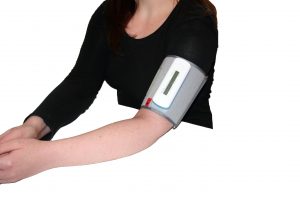Hypertension or high blood pressure can affect up to 10% of pregnancies, and might include those mothers that experience one of these health problems during pregnancy: chronic hypertension, gestational hypertension, pre-eclampsia, eclampsia, haemolysis, elevated liver enzymes and low platelets (HELLP) syndrome (1).


That’s not the end of it when the women give birth! Women who have experienced pregnancy related hypertension or high blood pressure are at greater risk of having post-pregnancy hypertensive disorders, including hypertension, ischaemic heart disease and stroke. The increased risk of these hypertensive disorders can last up to and beyond 10 years after the birth event (2).
These two findings have since prompted guideline changes by the American Heart Association and the European Society of Cardiology to include hypertension in pregnancy as a risk factor for hypertension in women postnatally.
This clinical link and subsequent risk factor still lacks common awareness and delayed diagnosis may jeopardise the health of these women. The precise increased risk of hypertension post-pregnancy is unclear.
A cohort study was undertaken in Denmark, between 1978-2012, with over 1 million women. The study examined the trend and timings of any hypertension over the first 10 years post-pregnancy (3). Within this study it was found that in the first year after pregnancy these women experienced 12-to 25-fold increase in hypertension following delivery, and even after 20 years there was a doubled risk factor for hypertension (3).


This clinical insight represents an important opportunity for assessing hypertension in women following a hypertensive pregnancy, a risk that is higher than for their peers. At the very least a regular blood pressure check should be taken soon after the pregnancy. With routine follow-ups for continued risk and diagnosis and timely treatments may well reduce their cardiovascular symptoms and the ongoing burden on the NHS where cardiovascular disease develops undiagnosed, unchecked and untreated.
Ensure that your GP or medical provider knows of this continued risk if you have had high blood pressure during one or all of your pregnancies, and perhaps for your own peace of mind you can self-monitor your own blood pressure for any declining signs of high blood pressure with an Activ8rlives Blood Pressure2 monitor, available in a Small-Medium or Medium-Large Upper Arm cuffs.
References
[1] Engeland, A. et al. Preeclampsia in pregnancy and later use of antihypertensive drugs. J Epidemiol 2015; 358:501-8.
[2] Brown, M.C. et al. Cardiovascular disease risk in women with pre-eclampsia: systematic review and meta-analysis. Eur J. Epidemiol 2013; 358: 1-19.
[3] Behrens, I. et al. Risk of post-pregnancy hypertension in women with a history of hypertensive disorders of pregnancy: nationwide cohort study. BMJ 2017; 358:j3078.
